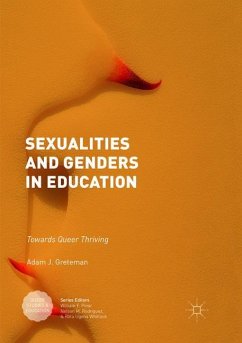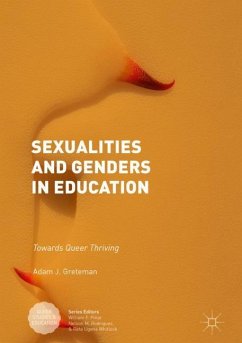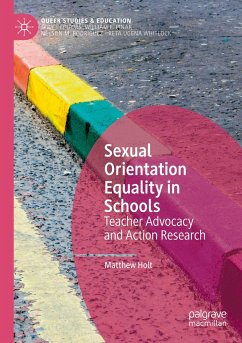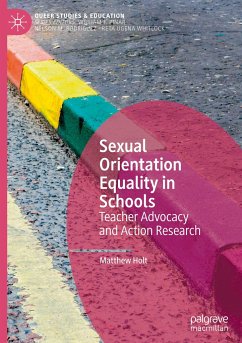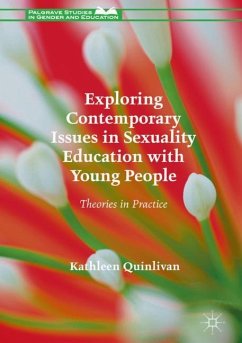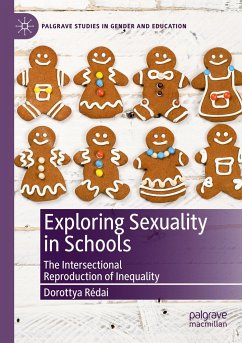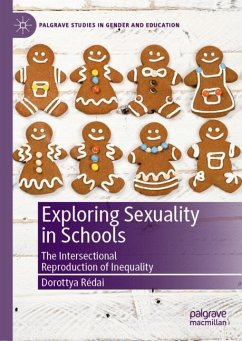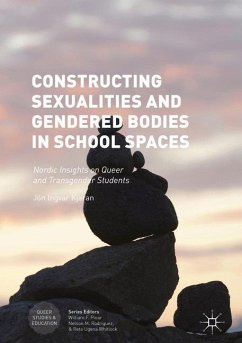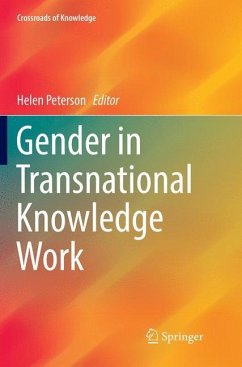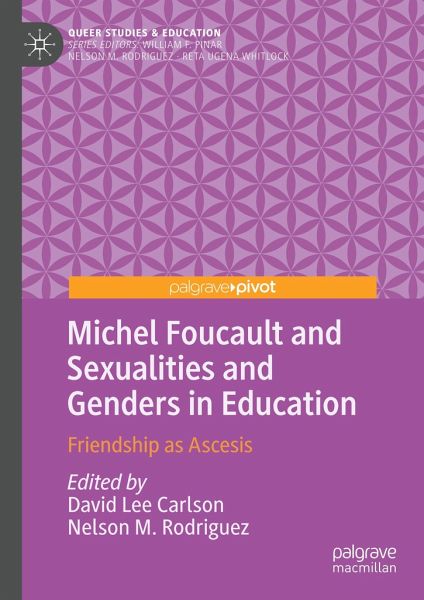
Michel Foucault and Sexualities and Genders in Education
Friendship as Ascesis
Herausgegeben: Carlson, David Lee; Rodriguez, Nelson M.

PAYBACK Punkte
21 °P sammeln!
This book examines, within the context and concerns of education, Foucault's reflections on friendship in his 1981 interview "Friendship as a Way of Life." In the interview, Foucault advances the notion of a homosexual ascesis based on experimental friendships, proposing that homosexuality can provide the conditions for inventing new relational forms that can engender a homosexual culture and ethics, "a way of life," not resembling institutionalized codes for relating. The contributors to this volume draw from Foucault's reflections on ascesis and friendship in order to consider a range of top...
This book examines, within the context and concerns of education, Foucault's reflections on friendship in his 1981 interview "Friendship as a Way of Life." In the interview, Foucault advances the notion of a homosexual ascesis based on experimental friendships, proposing that homosexuality can provide the conditions for inventing new relational forms that can engender a homosexual culture and ethics, "a way of life," not resembling institutionalized codes for relating. The contributors to this volume draw from Foucault's reflections on ascesis and friendship in order to consider a range of topics and issues related to critical studies of sexualities and genders in education. Collectively, the chapters open a dialogue for researchers, scholars, and educators interested in exploring the importance and relevance of Foucault's reflections on friendship for studies of schooling and education.



